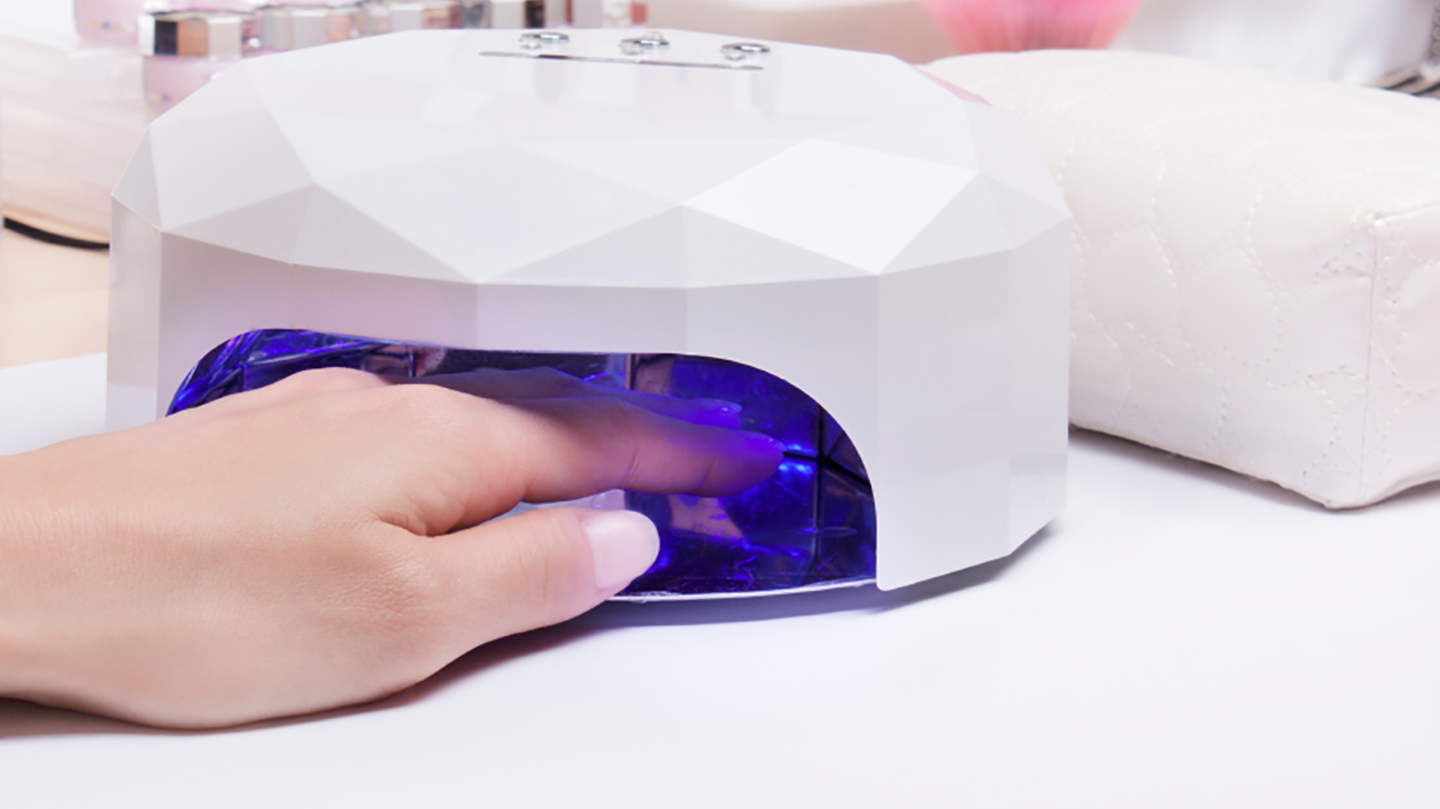A gel manicure or pedicure involves a manicurist applying a pre-mixed acrylic to the nails, and this mixture is then set and hardened under UV (ultra-violet) light using a small, portable UV machine. Application may involve up to three coats of gel, and each coat needs to be set or “cured” under the light.
Some medical experts have warned that the UV exposure during gel manicures and pedicures may cause problems, and there are also chemicals in the gel polish that have been known to damage your nails. But is this really true? Are gel manicures and regular pedicures safe to have?
The most common question asked is ‘can gel manicures and pedicures cause skin cancer?’ When you get repeated UV exposure, you raise your risk of this happening. But an occasional gel manicure or pedicure is very unlikely to cause problems as the area of skin exposed is small, the exposure is for short amounts of time, and the UV dose is low; the equivalent of only a couple of minutes' sunlight exposure.
The technology has been around for 30 years and there are just two documented cases of women (who had no history of skin cancer) developing tumours on their hands after UV-light exposure for gel polishes. (1)
Reassuringly, a study in the Journal of Investigative Dermatology in December 2012 examined this concern; the researchers concluded that the UV lamps in gel manicures would be highly unlikely to cause skin cancer, even if used every week for 250 years, and that there is no clinically significant carcinogenic risk associated with their use. (2)
Not all gel manicures and pedicures cause this UV concern. Some brands only "cure" under UV light. Newer brands such as Gelish often use LED light rather than the UV light to harden the colour. If the spa or salon where you have your gel manicure or pedicure uses LED rather than UV lamps, you have less reason to worry, since LED lights cure more quickly and are more efficient, giving out a smaller dose of UV radiation.
Some people worry about the effect the chemical process a gel manicure or pedicure has on the nails. Because the sealed polish is hard to remove, you generally need to soak your nails in acetone for at least 10 or 15 minutes before it breaks down the chemical bonds and the gel will come off. Some women have reported that the polish remover leaves their nails cracked, dry and brittle, although it is not clear whether it is the prolonged contact with the acetone or the chemicals in the gel nail polish itself that is the cause. Weakened nails can result in nail-bed infections, fungus and poor general nail health.
If you are concerned about the risks of having a gel mani or pedi, consider opting for a gel polish only for a special occasion, such as a wedding or that fortnight on a tropical isle, where chip free long wear nails are a must. Rather than a regular polish every two weeks, which is when the nail starts to grow out and the gap between the cuticle and the gel starts to show. That will let your natural nails "breathe" and strengthen, and also minimalise the time your skin is exposed. This would be a good time to focus on some nail care - using a cuticle oil and a good vitamin e lotion.
Or, opt for a classic pedicure instead, and enjoy a pamper with foot massage. You'll still benefit from a nail file, cuticle care and you can choose a non-gel top coat nail polish or speak to the nail technician about nail art - if that's your thing.
References:
1. Deborah F. MacFarlane, MD, MPH; Carol A. Alonso, MD (2009) Occurrence of Nonmelanoma Skin Cancers on the Hands After UV Nail Light Exposure. Archives of Dermatology 145 (4) pp447-449. Accessed at: http://www.ncbi.nlm.nih.gov/pubmed/19380667 April 2013
2. Markova, A. and Weinstock, M.A. (April 2013) Risk of Skin Cancer Associated with the Use of UV Nail Lamp. Journal of Investigative Dermatology 133, pp1097-1099; published online 6 December 2012. Accessed at: http://www.nature.com/jid/journal/v133/n4/full/jid2012440a.html April 2013

Stylish Spy
21st April 2013
Spy Likes:
Minimalist lines; organic products; facial massage; tranquillity; interesting people-watching.
Spy Dislikes:
Discarded towels on loungers; steam rooms that aren't steamy; mobile phones.
